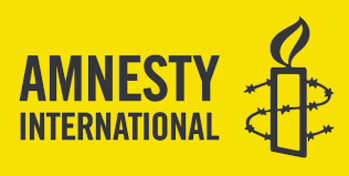Amnesty International, a human rights group says the release of former South Sudanese opposition spokesman James Gatdet Dak and South African national William Endley is a welcome effort by the government towards upholding human rights.
President Salva Kiir while addressing the peace celebrations in Juba on Wednesday, said that rebel spokesman James Gatdet and South African ex-colonel and adviser to Riek Machar, William Endley would be freed on Thursday as a goodwill gesture. The two men were sentenced to death by a court in Juba in January.
In a statement after their release in Juba on Thursday, Amnesty International’s Regional Director for East Africa, the Horn and the Great Lakes Joan Nyanyuki said more still needs to be done to abolish the death penalty.
“The pardoning of James Gatdet and William Endley comes as a relief to all who cherish human rights and abhor the death penalty, but more needs to be done. The South Sudanese authorities must commute all death sentences and get on the right side of history by abolishing this ultimate cruel form of punishment,” she said.
Nyanyuki further called for investigations into the repatriation of Gatdet from Kenya where he was registered as a refugee to South Sudan where he was arrested in November 2016. She said the act put an immense risk on his life.
“This repatriation must be fully and independently investigated, and action taken against those responsible.”
Nyanyuki said under international law, the Kenyan authorities have a duty to ensure the safety of all those in its territory, including refugees.
In February 2018, Gatdet and Endley were both sentenced to death. Gatdet’s charges included treason and incitement against the government, while Endley’s charges included espionage, conspiracy to overthrow the government and supplying weapons.




